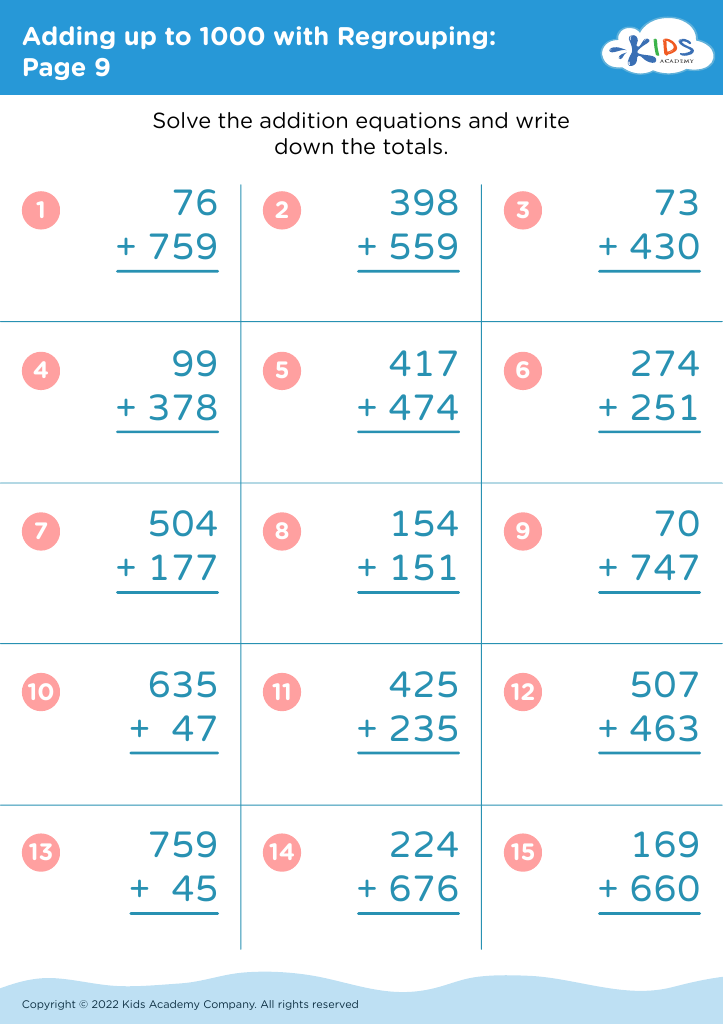Mathematical reasoning Adding up to 1000 with Regrouping Worksheets for Ages 3-8
3 filtered results
-
From - To
Unlock the world of mathematical reasoning for young learners with our "Adding Up to 1000 with Regrouping" worksheets, designed specifically for ages 3-8. These engaging resources encourage children to practice addition skills while developing critical thinking through regrouping techniques. Featuring colorful illustrations and age-appropriate exercises, our worksheets help students grasp foundational math concepts in a fun and interactive way. Teach them how to manage larger numbers comfortably, laying the groundwork for future mathematical success. Ideal for classrooms or at-home learning, these materials foster a love for mathematics while enhancing problem-solving abilities. Start your child's mathematical journey today!
Mathematical reasoning, particularly concepts like adding up to 1000 with regrouping, is essential for children aged 3-8 as it lays a foundational skill set that promotes critical thinking and problem-solving. At this age, children are naturally curious and eager to explore mathematical concepts. Understanding regrouping helps children learn how to break down numbers and manage larger sums, fostering a strong number sense.
For parents and teachers, developing this skill is crucial because it establishes a positive attitude towards math, encouraging confidence in handling numerical tasks. As these young learners engage in addition with regrouping, they practice important cognitive skills such as pattern recognition, logical reasoning, and the ability to handle abstract concepts—key outcomes that will benefit them across all subjects and everyday life decisions.
Moreover, spatial awareness and attention to detail are strengthened through these practices, as children visualize the regrouping process. Educators and caregivers can create playful and interactive activities that teach these concepts while making learning enjoyable. In fostering a robust mathematical foundation, adults not only enhance children's academic success but also empower them with the tools needed to navigate future educational challenges. Hence, investing time in mathematical reasoning now ensures students thrive later in their academic journey.














